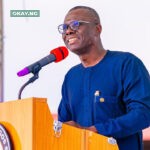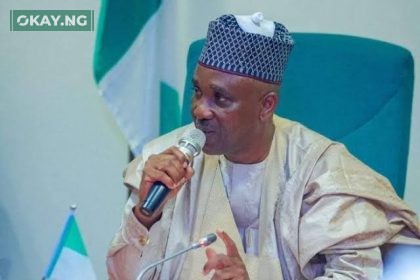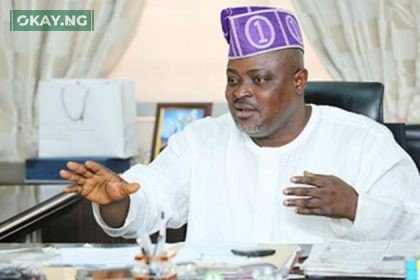The National Assembly has recalibrated the 2025 budget, making key adjustments to expenditure allocations while maintaining the overall budget size at N54.9 trillion. This decision, announced on Tuesday, follows a motion presented by Senator Adeola Olamilekan and Hon. Abubakar Kabir, chairpersons of the respective appropriations committees, citing the need for accuracy and alignment with national priorities.
The initial budget passed on February 13th, has undergone revisions to address discrepancies in capital and recurrent expenditure. While the total expenditure remains consistent, the revised bill allocates N13.588 trillion to recurrent expenditure, a N524 billion increase. Correspondingly, capital expenditure has been adjusted downwards by the same amount, now standing at N23.439 trillion. This shift, as legislative sources suggest, reflects a necessary correction of technical errors in the original breakdown, particularly concerning funding for essential sectors like salaries, pensions, and operational costs.
“The adjustments were crucial to ensure the budget accurately reflects our commitment to both efficient spending and developmental projects,” a source close to the appropriations committee told me. “We needed to strike a balance between meeting immediate needs and investing in the future.”
This sentiment underscores the delicate balancing act lawmakers face. While capital expenditure drives long-term growth through infrastructure development and other key projects, adequate recurrent funding is crucial for maintaining essential government services and fulfilling obligations to public sector employees. The revised allocations suggest a prioritization of these immediate needs, perhaps reflecting current economic realities.
The 2025 budget journey began with President Tinubu’s initial proposal of N49.7 trillion. This figure was later revised upwards to N54.2 trillion on February 5th, 2024, following projections of increased revenue from agencies like the Federal Inland Revenue Service (FIRS) and the Nigeria Customs Service (NCS). President Tinubu, in a letter to the National Assembly, detailed the expected contributions: N1.4 trillion from FIRS, N1.2 trillion from NCS, and N1.8 trillion from other government agencies. The final approved budget of N54.99 trillion represents a further increase following parliamentary deliberations.
The approved budget breakdown reveals a complex fiscal landscape: Total Expenditure: N54.99 trillion; Statutory Transfers: N3.65 trillion; Recurrent (Non-Debt) Expenditure: N13.64 trillion; Capital Expenditure: N23.96 trillion; Debt Servicing: N14.32 trillion; and Fiscal Deficit: N13.08 trillion. The significant allocation to debt servicing highlights the ongoing challenge of managing Nigeria’s debt burden, a factor that inevitably influences budgetary decisions.
The implications of these revisions are far-reaching. While the increased recurrent expenditure may provide some relief in critical sectors, the reduction in capital expenditure raises questions about the pace of infrastructure development. It remains to be seen how these adjustments will impact the lives of ordinary Nigerians, who rely on government spending for essential services and economic opportunities. The coming months will be crucial in observing the implementation of this budget and its ultimate effect on the nation’s economic trajectory. The bill is now awaiting President Tinubu’s assent.












